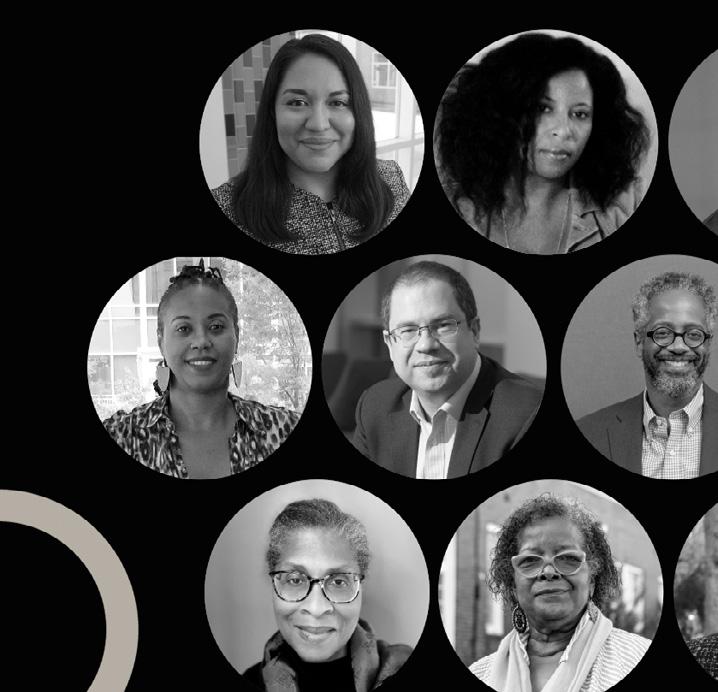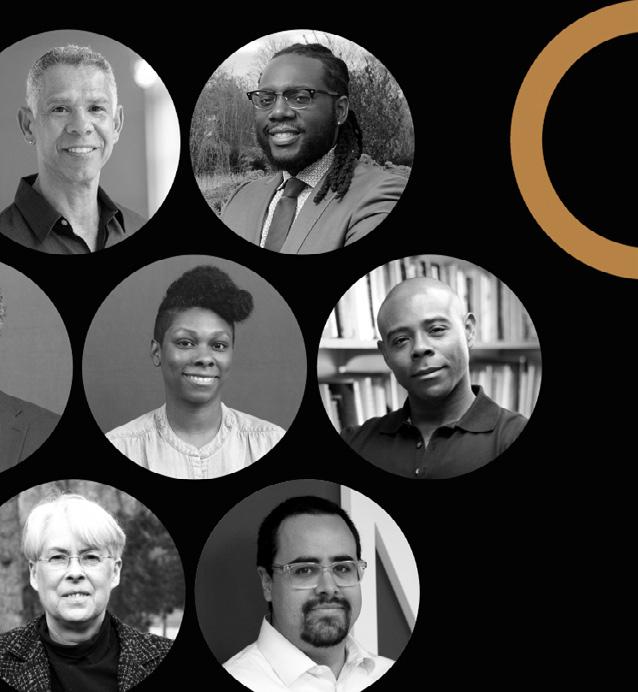
3 minute read
ADDRESSING EQUITY, INCLUSION & SOCIAL JUSTICE
The Clarice Smith Performing Arts Center’s inaugural BlackLight Summit convened Black, Indiginous, people of color and LGBTQ+ dance artists from across the country for conversations, workshops and performances. The Clarice also launched “Vital Signs: Creative Arts for Black Lives Mini-Grants,” in collaboration with the Office of Diversity and Inclusion, Multicultural Involvement and Community Advocacy, Black Terps Matter and NextNOW Fest student curators, to award grants to artists in the UMD community who are creating projects that affirm Black life and vitality and interrogate white supremacy and anti-Blackness.

Advertisement
Distinguished University Professor Ruth Enid Zambrana, professor in the Harriet Tubman Department of Women, Gender, and Sexuality Studies, co-authored “Equity and Inclusion: Effective Practices and Responsive Strategies,” a guidebook for college and university leaders who are committed to promoting equity, inclusion and success for traditionally and historically underrepresented minority faculty in their institutions. The guidebook drew from lessons learned during a national summit held at the University of Pennsylvania entitled “Changing the National Conversation: Inclusion and Equity,” convened in partnership with Swarthmore College and the Consortium on Race, Gender and Ethnicity at Maryland, of which Zambrana is the director. The Clarice formed a cross-departmental team to explore how to make the arts more welcoming and comfortable for patrons with autism, sensory sensitivities and other disabilities in the virtual environment brought on by the COVID-19 pandemic. These “sensory-friendly” events include components like comprehensive “Know Before You Go” materials, interactive conversations with the performers and guides with instructions on computer controls and keyword definitions.


As part of an ongoing research project in the Department of Linguistics that looks at gender representation in linguistics, doctoral students Hanna Muller and Phoebe Gaston began modeling a more inclusive approach to gender research by reframing the project in ways that are less reliant on assumptions of a gender binary—acknowledging that gender-nonconforming and nonbinary individuals experience additional harms that may impact their participation in the field.
The Harriet Tubman Department of Women, Gender, and Sexuality Studies hosted its first annual celebration of Harriet Tubman Day in March to mark the department’s name change. Speakers included Ernestine (Tina) Wyatt, a descendant of Tubman and a UMD alum, as well as faculty and students who have been inspired to draw on Tubman’s courageous anti-racist and suffragist legacy.
Amid an increase in anti-Asian hate during the coronavirus pandemic, Professor of American Studies Janelle Wong examined nine sources and four types of data about anti-Asian hate incidents, including from the reporting forum Stop AAPI Hate, Pew Research, as well as official law enforcement statistics. Her widely cited analysis found major contradictions in the prevailing narrative around perpetrators, victims and the general environment of racism. For instance, while media coverage perpetuated the idea that the violence was committed mostly by people of color, Wong’s analysis showed the majority of attackers were white.


As part of a new collegewide campaign to address racism, inequality and social justice in curriculum, scholarship, programming and community engagement, ARHU launched the yearlong Dean’s Colloquium Series on Race, Equity and Justice, featuring faculty expertise on issues of systemic racism, inequality and justice. The events, hosted by
Dean Bonnie Thornton Dill, were free and took place virtually. A 21-person Committee on Race, Equity and Justice was also created to advise the dean.









